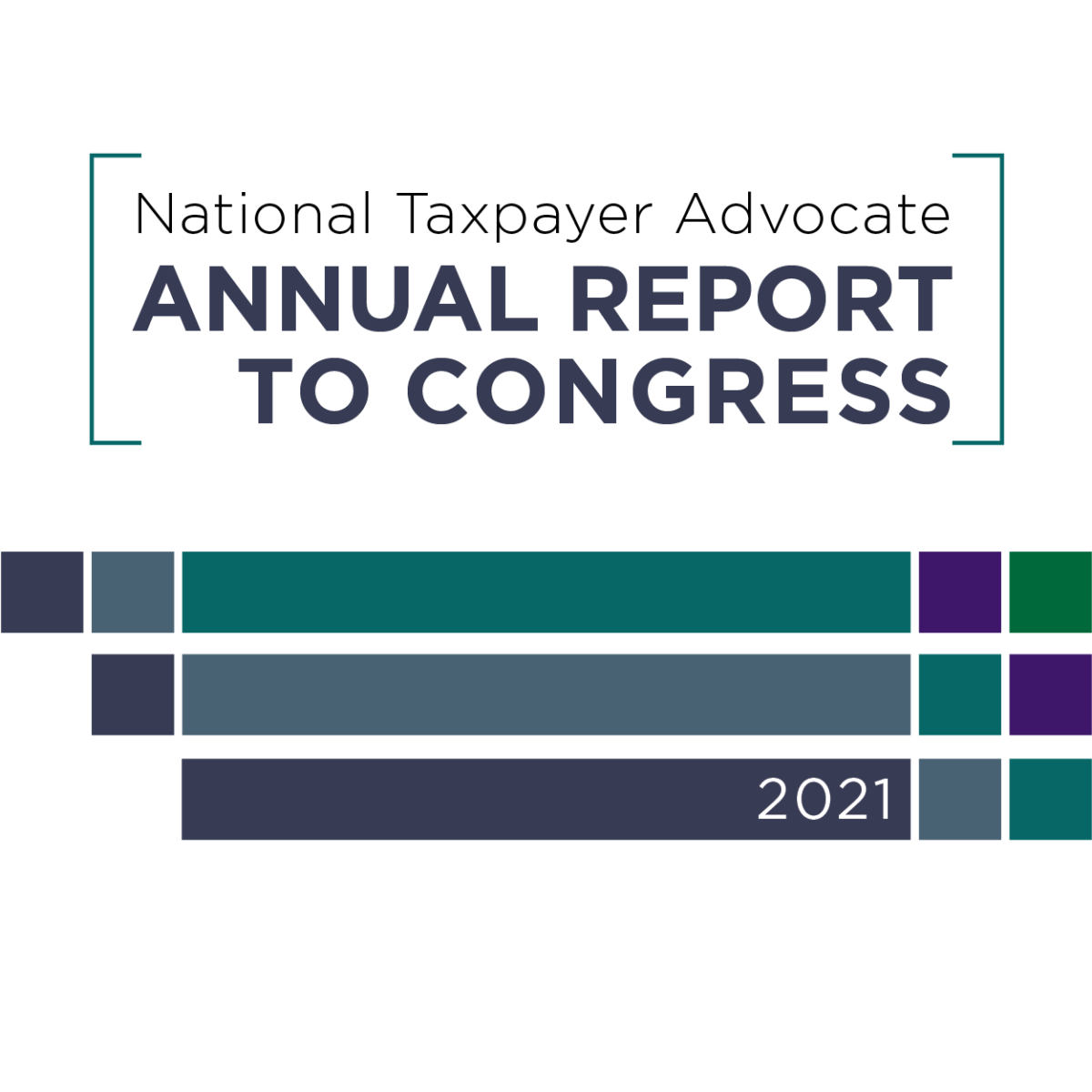

National Taxpayer Advocate Erin M. Collins today released her 2021 Annual Report to Congress, calling calendar year 2021 “the most challenging year taxpayers and tax professionals have ever experienced.” The report says tens of millions of taxpayers experienced delays in the processing of their returns, and with 77 percent of individual taxpayers receiving refunds, “processing delays translated directly into refund delays.”
The report credits the IRS for performing well under difficult circumstances. Since the start of the pandemic, the IRS, in addition to its traditional work, has implemented significant programs enacted by Congress. It has issued 478 million stimulus payments (referred to as Economic Impact Payments or “EIPs”) totaling $812 billion and has sent Advance Child Tax Credit (AdvCTC) payments to over 36 million families totaling over $93 billion.
However, the report says the “[t]he imbalance between the IRS’s workload and its resources has never been greater.” Since FY 2010, the IRS’s workforce has shrunk by 17 percent, while its workload – as measured by the number of individual return filings – has increased by 19 percent. The report reiterates the National Taxpayer Advocate’s longstanding recommendation that Congress provide the IRS with sufficient funding to serve taxpayers well.
Major challenges for taxpayers
Collins states, “There is no way to sugarcoat the year 2021 in tax administration. The year 2021 provided no shortage of taxpayer problems.” Collins added, “While my report focuses primarily on the problems of 2021, I am deeply concerned about the upcoming filing season”, adding that “Paper is the IRS’s kryptonite, and the agency is still buried in it.”
The report says processing delays led to a cascade of customer service problems.
By statute, the National Taxpayer Advocate is required to identify the ten most serious problems encountered by taxpayers in their dealings with the IRS. This year’s report details the following problems: processing and refund delays; challenges in employee recruitment, hiring, and training; telephone and in-person taxpayer service; transparency and clarity; filing season delays; limitations of online taxpayer accounts; limitations in digital taxpayer communications, including e-mail; e-filing barriers; correspondence audits; and the impact of collection policies on low-income taxpayers. For each problem, the report includes an IRS response. Also for the first time, the report includes a section titled “At a Glance” that provides concise summaries of the ten “most serious problems.”
TAS Administrative recommendations to the IRS
The report makes numerous recommendations to address taxpayer problems, including the following:
National Taxpayer Advocate “Purple Book” of legislative recommendations
The National Taxpayer Advocate’s 2022 Purple Book proposes 68 legislative recommendations for consideration by Congress. Among them are the following:
Other sections in the report
The report also contains a taxpayer rights assessment that presents performance measures and other relevant data, a summary of key TAS systemic advocacy accomplishments, a discussion of the ten federal tax issues most frequently litigated during the preceding year, and a description of TAS’s case advocacy operations during FY 2021.
Please visit https://www.taxpayeradvocate.irs.gov/AnnualReport2021 for more information.
Related Items:
About the Taxpayer Advocate Service
TAS is an independent organization within the IRS that helps taxpayers and protects taxpayer rights. Your local advocate’s number is available in your local directory and at https://taxpayeradvocate.irs.gov/contact-us. You may also call TAS toll-free at 877-777-4778. TAS can help if you need assistance resolving an IRS problem, if your problem is causing financial difficulty, or if you believe an IRS system or procedure isn’t working as it should. And our service is free. For more information about TAS and your rights under the Taxpayer Bill of Rights, go to https://taxpayeradvocate.irs.gov. You can get updates on tax topics at facebook.com/YourVoiceAtIRS, Twitter.com/YourVoiceatIRS, and YouTube.com/TASNTA.